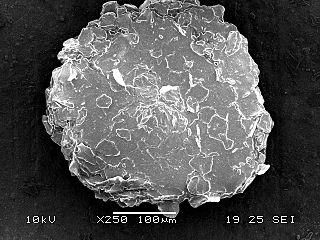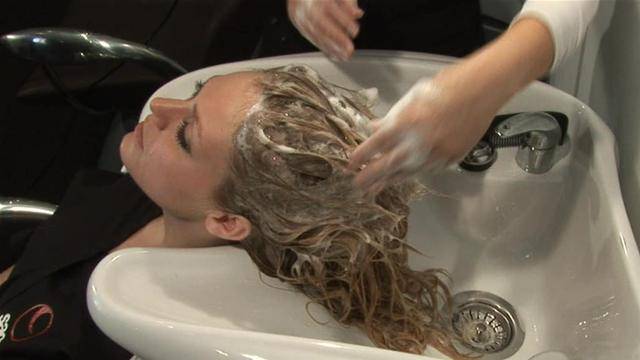Treatment Tips For Scalp Dandruff Of Different Causes
Dandruff is a common scalp problem that affects children, adolescents and adults. It can persist for years but it is treatable. Dandruff has become a common term to describe many different types of scalp conditions where white specks are seen on the scalp, hair, forehead and shoulders. However, there may be different causes and each has to be treated in specific ways. Not all cases of dandruff respond well to treatment and it is important to adopt multiple approaches to manage and prevent dandruff.
What Causes Dandruff?
Dandruff is a problem with the scalp (skin) and not the hair. The specks that are visible on the hair emanate from the scalp. Dead skin cells from the scalp are constantly shed as with skin on any part of the body. Normally you do not see these surface skin cells that are lost on a constant basis. However, when large clumps are shed then it may be evident as yellowish-white specks which most people refer to as dandruff.
- Dry skin on the scalp is one of the most common causes of dandruff.
- Poor hygiene is another problem as the dead skin and natural oils are not washed off regularly.
- Irritation and allergy to hair care products, particularly hair dyes and chemical straighteners (relaxers).
- Seborrheic dermatitis is a skin condition where the skin becomes oily and inflamed. It can occur on many parts of the body and not only the scalp.
- Malassezia (previously known as Pitysporum) is a naturally-occurring skin fungus that can become overgrown on the scalp. It does not cause an infection.
- Tinea capitis is a fungal infection of the scalp caused by dermatophytes (‘ringworm’).
- Skin diseases like psoriasis and eczema.
Dandruff does not cause hair loss. But some of the causes of dandruff may also lead to focal hair loss, like with tinea capitis.
Enlarged dandruff speck from Wikimedia Commons
Wash Your Hair Regularly
Just how often you should wash your hair may vary from one person to another based on several factors. Washing your hair daily is not necessary but you should try to wash it at least 2 to 3 times a week. People who tend to have more oily hair or perspire a lot should wash their hair more often. Longer hair may also need washing frequently as the hair is more likely to trap dust and dirt from the environment. The way you dry your hair is also important. Using an electric hair dryer is not always a problem unless you use it on very high heat settings and for long periods. Instead try to dry with a towel thoroughly and then use a hair dryer, or opt to air dry.
Use Anti-Dandruff Shampoos
There is a range of shampoos available for treating dandruff. Some are available over-the-counter while others may require a prescription from a doctor. These shampoos contain substances like ketoconazole, zinc, selenium, sulfur and salicylic acid. It should be used as directed on the packaging or as prescribed by a doctor. If you are unsure as to how long you should use an anti-dandruff shampoo, then speak to a pharmacist or doctor. Some of these shampoos can irritate your scalp if used in excess or for too long periods of time. Your doctor may prescribe other shampoos for eczema or psoriasis of the scalp.
Minimize Hair Styling Products
Some people may experience more dandruff when using certain hair styling products. Hair dyes are one of the common irritants and some people are allergic to ingredients like PPD (4-paraphenylenediamine). Hair dye allergies mean that you have a hypersensitivity to some of the ingredients. Not every person will experience this problem. However, some substances are irritants and not allergens. An irritant can affect the scalp of any person even if they are not allergic to the causative substance. Hair oils, styling gels and hair sprays may also be a problem. Some hair gels harden and then flake off. The tiny specks that you think is dandruff may actually be the hardened flakes of styling gel.
Healthy Diet And Supplements
A healthy scalp is directly linked to your general state of health. This centers largely around a healthy diet. There is some evidence to suggest that foods rich in B-complex vitamins, selenium, zinc and certain types of fatty acids may help in the prevention of dandruff. However, a dietary change alone is not sufficient. It should be incorporated with other lifestyle changes. Sometimes a nutritional supplement may be the better choice in ensuring the optimal balance of nutrients. It should be used alongside a healthy diet. There is no conclusive evidence to suggest that certain foods may worsen dandruff as is commonly believed.
Control Your Stress Levels
Psychological stress may play a role in some cases of dandruff. It depends on the cause. For example, scalp psoriasis may get worse during times of stress. Furthermore stress affects your general state of health which can impact the health of your scalp. Depending on the underlying cause, stress can actually trigger the onset of dandruff. As with a healthy diet, stress management alone may not be effective in preventing dandruff. However, it is one lifestyle factor that can be helpful especially if you are experiencing a stubborn case of dandruff. Some people are very conscious about having dandruff and this can cause psychological stress thereby creating a vicious circle.
Do Not Always Cover Your Head
Wearing a hat or scarf may increase the chance of dandruff especially if you cover your head daily and for long periods of time. If you are covering your head to mask your dandruff, then you need to be aware of the fact that you may be making your condition worse. Firstly, a hat and head scarf may increase the perspiration on your scalp. Sweat irritates the skin. Secondly, covering your head reduces your scalp’s exposure to sun. Long hours of sunbathing is not encouraged but daily exposure to short periods of sunlight can be helpful for scalp health. Sometimes the textiles of the hat or scarf can irritate the scalp or even trigger an allergic reaction.







